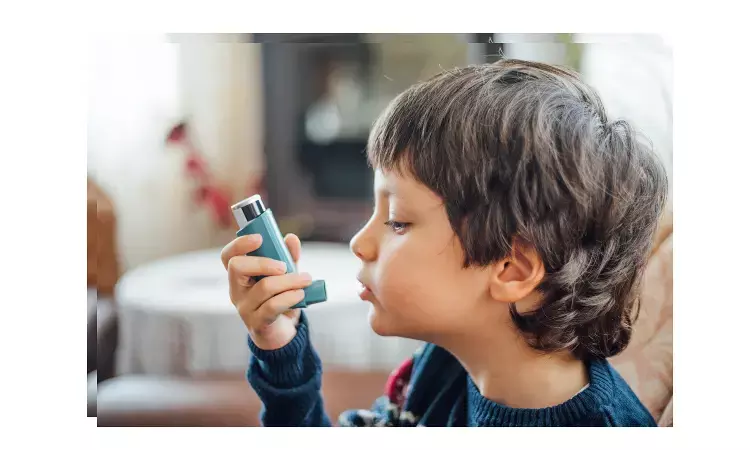- Home
- Medical news & Guidelines
- Anesthesiology
- Cardiology and CTVS
- Critical Care
- Dentistry
- Dermatology
- Diabetes and Endocrinology
- ENT
- Gastroenterology
- Medicine
- Nephrology
- Neurology
- Obstretics-Gynaecology
- Oncology
- Ophthalmology
- Orthopaedics
- Pediatrics-Neonatology
- Psychiatry
- Pulmonology
- Radiology
- Surgery
- Urology
- Laboratory Medicine
- Diet
- Nursing
- Paramedical
- Physiotherapy
- Health news
- Fact Check
- Bone Health Fact Check
- Brain Health Fact Check
- Cancer Related Fact Check
- Child Care Fact Check
- Dental and oral health fact check
- Diabetes and metabolic health fact check
- Diet and Nutrition Fact Check
- Eye and ENT Care Fact Check
- Fitness fact check
- Gut health fact check
- Heart health fact check
- Kidney health fact check
- Medical education fact check
- Men's health fact check
- Respiratory fact check
- Skin and hair care fact check
- Vaccine and Immunization fact check
- Women's health fact check
- AYUSH
- State News
- Andaman and Nicobar Islands
- Andhra Pradesh
- Arunachal Pradesh
- Assam
- Bihar
- Chandigarh
- Chattisgarh
- Dadra and Nagar Haveli
- Daman and Diu
- Delhi
- Goa
- Gujarat
- Haryana
- Himachal Pradesh
- Jammu & Kashmir
- Jharkhand
- Karnataka
- Kerala
- Ladakh
- Lakshadweep
- Madhya Pradesh
- Maharashtra
- Manipur
- Meghalaya
- Mizoram
- Nagaland
- Odisha
- Puducherry
- Punjab
- Rajasthan
- Sikkim
- Tamil Nadu
- Telangana
- Tripura
- Uttar Pradesh
- Uttrakhand
- West Bengal
- Medical Education
- Industry
Follow-up visit 14 days after an asthma-related ED visit decreases subsequent asthma-related ED revisits

About 25 million Americans have asthma. This equals to about 1 in 13 Americans, including 8 percent of adults and 7 percent of children. About 20 million U.S. adults age 18 and over have asthma. Asthma is more common in adult women than adult men.
A recent study assess the association between follow-up after an asthma-related emergency department (ED) visit and the likelihood of subsequent asthma-related ED utilization.
The study findings are published in The Official Journal of the Academic Pediatric Association, 2022
The study found that a positive association between outpatient 14-day follow-up and asthma-related ED revisits. It improved asthma control as providers follow the NHLBI guideline stepwise approach and highlights an opportunity for improvement, with only 22.6% of those with asthma-related ED visits having 14-day follow-up.
The study used data from California Medicaid (2014–2016), and Vermont (2014–2016) and Massachusetts (2013–2015) all-payer claims databases, we identified asthma-related ED visits for patients ages 3 to 21. Follow-up was defined as a visit within 14 days with a primary care provider or an asthma specialist. Outcome: asthma-related ED revisit after the initial ED visit. Models included logistic regression to assess the relationship between 14-day follow-up and the outcome at 60 and 365 days, and mixed-effects negative binomial regression to assess the relationship between 14-day follow-up and repeated outcome events (# ED revisits/100 child-years). All models accounted for zip-code level clustering.
The results of the study
• There were 90,267 ED visits, of which 22.6% had 14-day follow-up. Patients with follow-up were younger and more likely to have commercial insurance, complex chronic conditions, and evidence of prior asthma.
• 14-day follow-up was associated with decreased subsequent asthma-related ED revisits at 60 days (5.7% versus 6.4%, P < .001) and at 365 days (25.0% versus 28.3%, P < 0.001).
• Similarly, 14-day follow-up was associated with a decrease in the rate of repeated subsequent ED revisits (66.7 versus 77.3 revisits/100 child-years; P < 0.001).
Researchers concluded that "We found a protective association between outpatient 14-day follow-up and asthma-related ED revisits. This may reflect improved asthma control as providers follow the NHLBI guideline stepwise approach. Our findings highlight an opportunity for improvement, with only 22.6% of those with asthma-related ED visits having 14-day follow-up."
Reference: https://doi.org/10.1016/j.acap.2021.10.015
Medical Dialogues consists of a team of passionate medical/scientific writers, led by doctors and healthcare researchers. Our team efforts to bring you updated and timely news about the important happenings of the medical and healthcare sector. Our editorial team can be reached at editorial@medicaldialogues.in.
Dr Kamal Kant Kohli-MBBS, DTCD- a chest specialist with more than 30 years of practice and a flair for writing clinical articles, Dr Kamal Kant Kohli joined Medical Dialogues as a Chief Editor of Medical News. Besides writing articles, as an editor, he proofreads and verifies all the medical content published on Medical Dialogues including those coming from journals, studies,medical conferences,guidelines etc. Email: drkohli@medicaldialogues.in. Contact no. 011-43720751


